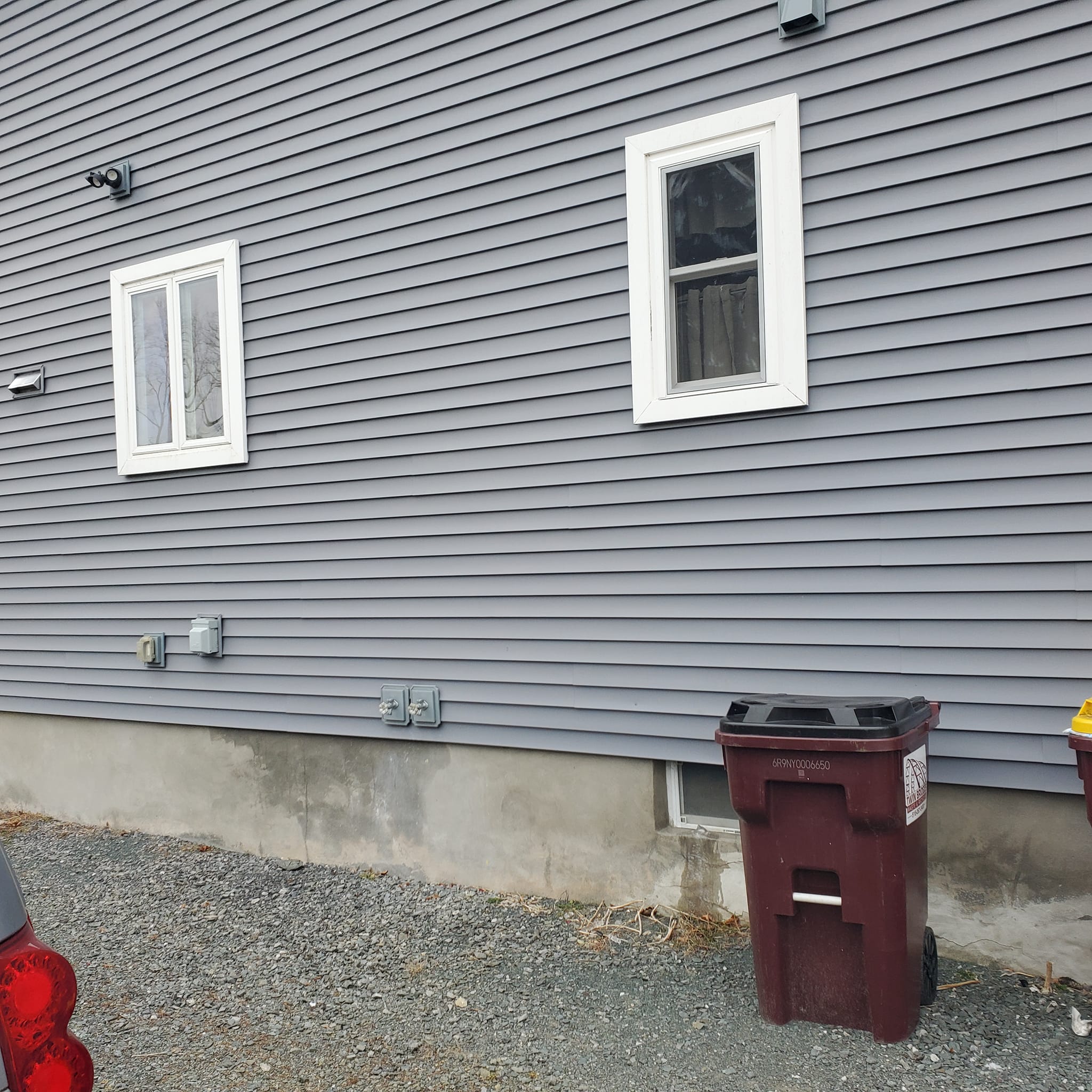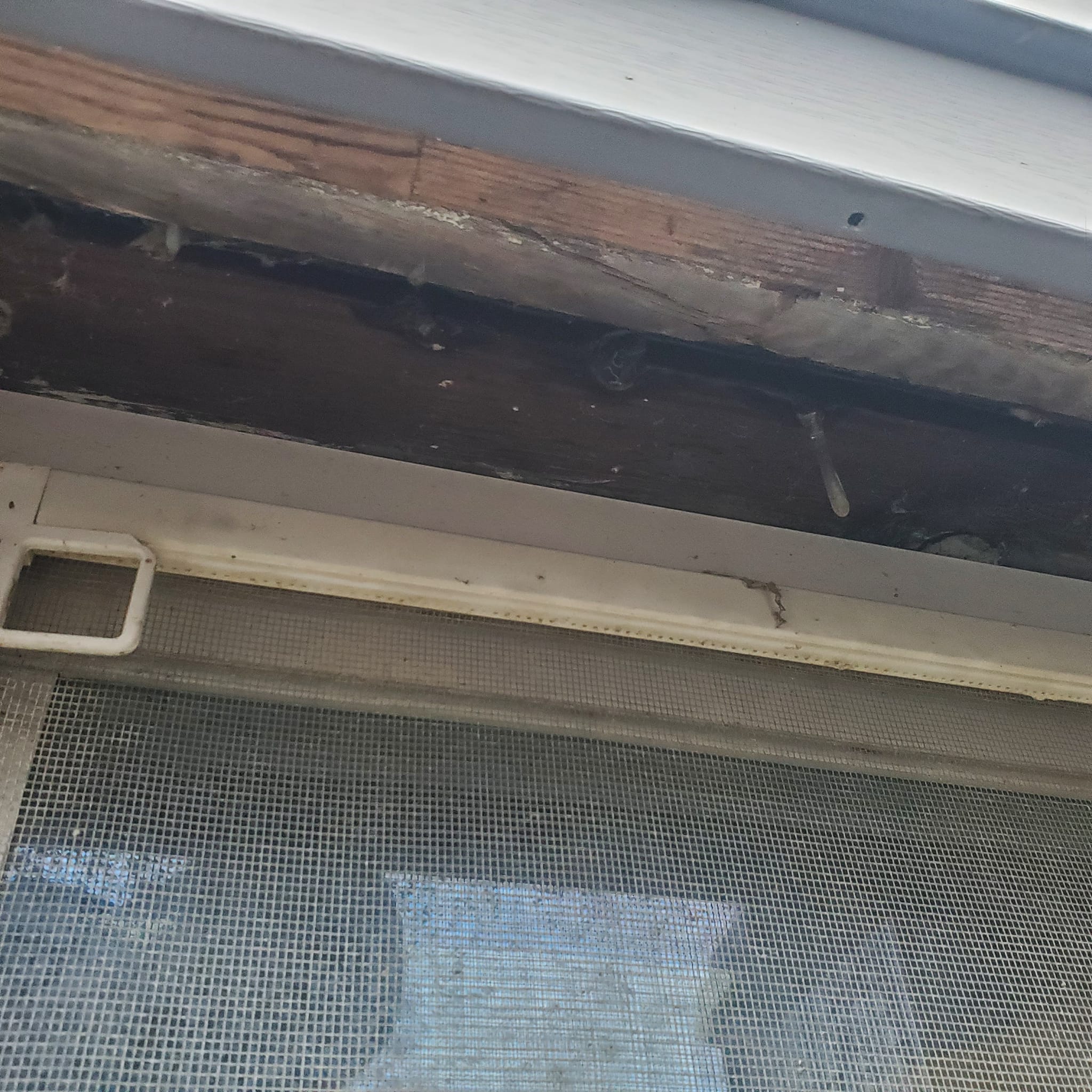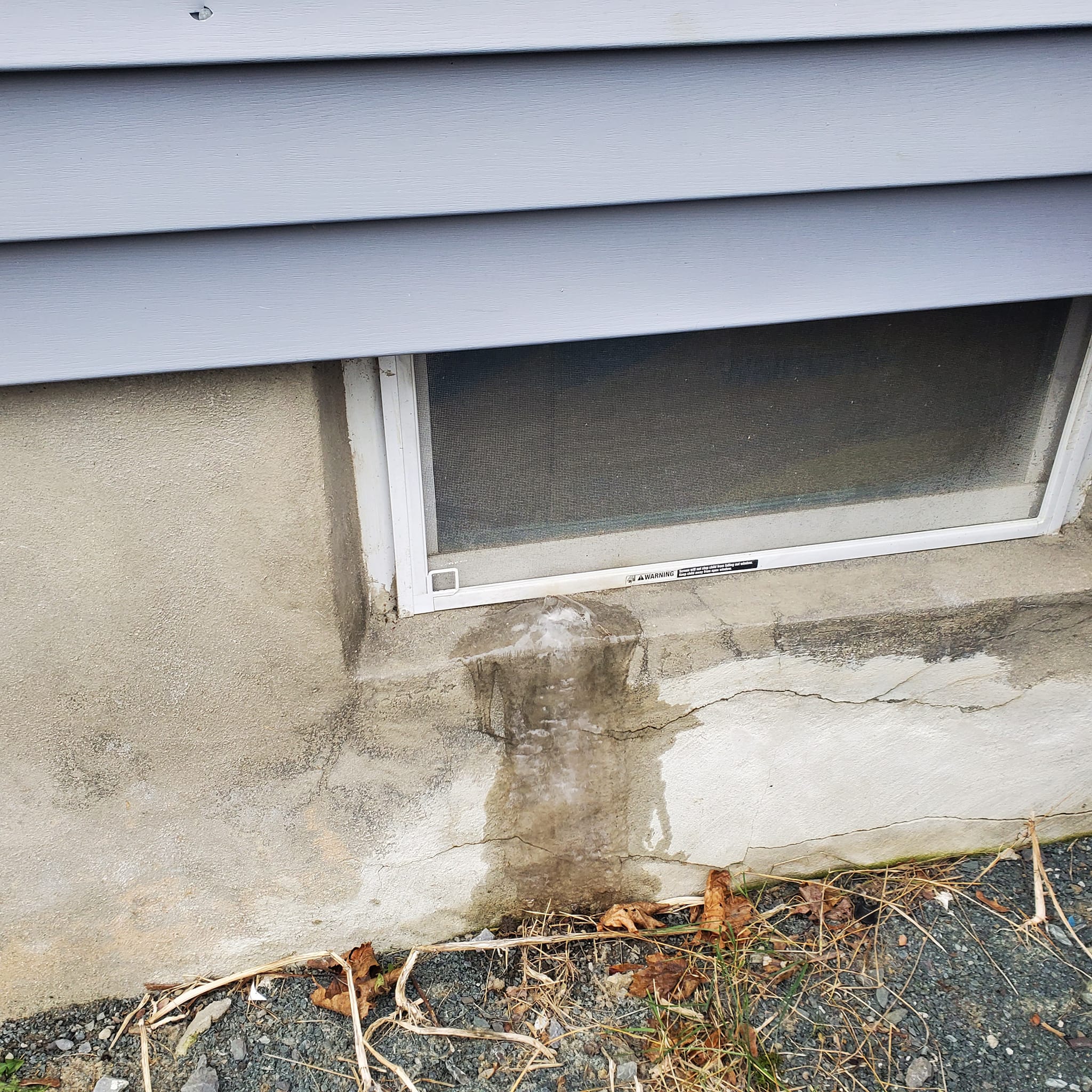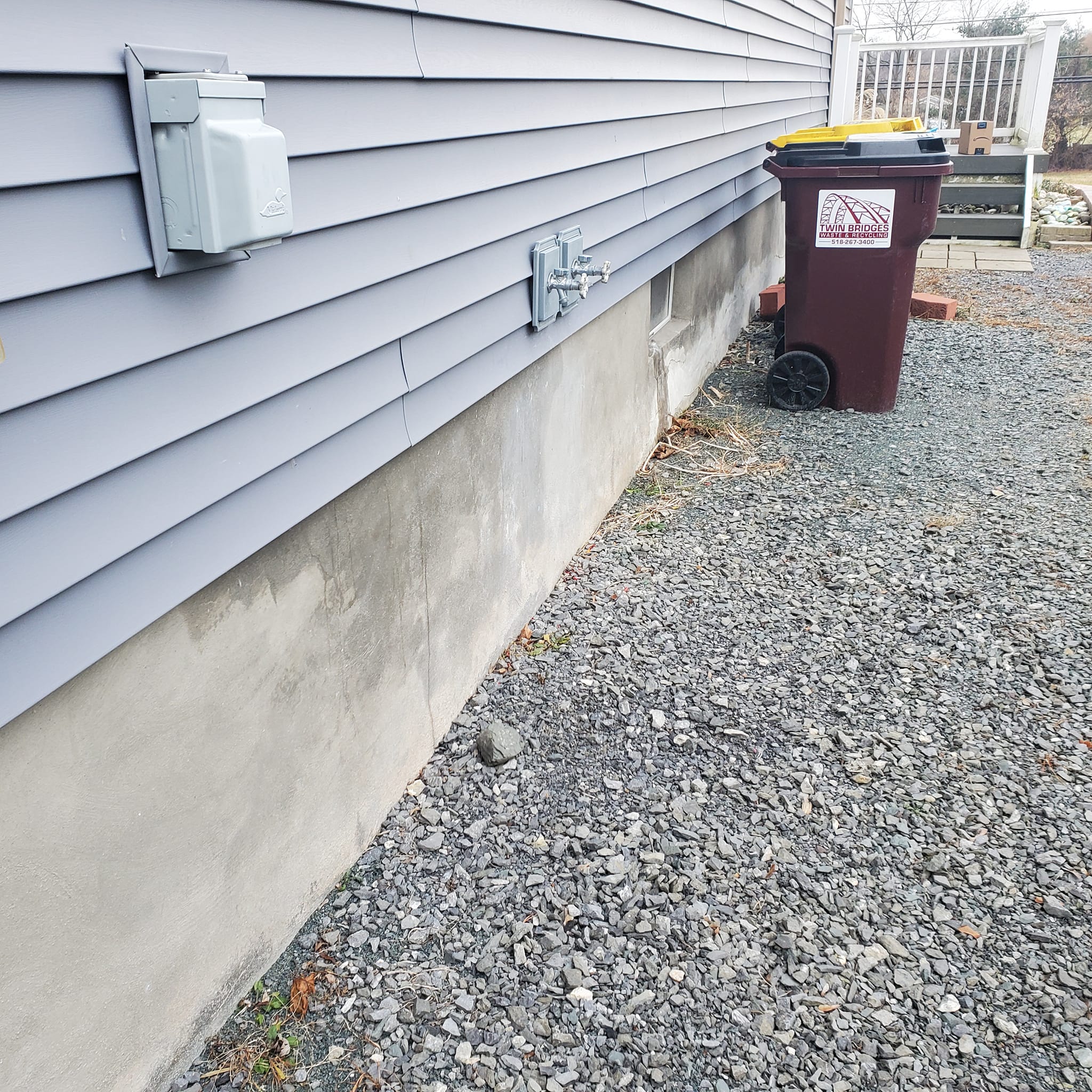Could the recent weather conditions be causing water damage in your basement?
10 months ago
Last Updated: August 11, 2024
We had a lot of rain and then it got really cold. I noticed some water in the basement but didn’t think much of it at first, considering the rain. But now I’m looking closer and thinking maybe it’s because the windows aren’t sealed properly and the water is getting behind the siding and seeping down. What do you think?




Siding is not waterproof, which is why it’s necessary to wrap the building with air and rain house wrap.
To prevent water damage, it’s important to pull back the siding for flashing and sealing around the window.
Keep in mind that vinyl siding has the ability to conceal numerous imperfections. However, if it’s not installed correctly, it can actually cause issues on its own.
Make sure your windows have flashing over the top and caulking at least along the sides. Right now, they seem really exposed.
You should try pulling back some of the siding to see if it’s on top of the wrap. If the wood underneath is wet, you’ll need to redo the wrap. If it’s on top of the wrap, that’s fine. The water is likely coming from the window and getting under the siding.
The water could even be coming from the roof capping. Have you checked the top of your siding where it meets the roof? The windows appear fine, but it’s always good to double-check.
Just snagged a sample image, but First off, check the flashing on the eaves, then move on to the upper windows… if they cut corners with the basement window, I doubt they’d care about the upper ones. The window trim may look good, but if water isn’t redirected, it will seep behind the siding or into the insulation. Foam might help divert it temporarily, but open cell foam isn’t waterproof – it’s like a sponge, so freeze-expansion could occur.
It’s difficult to make out from the photo, but I believe that’s a 3-inch jay around the window
Hey, taking a closer look at this is crucial. Here’s one way to tackle a window leak. Water can be tricky and find all sorts of unexpected paths. It can even travel uphill at times. I once saw a pipe leak that caused water to travel 6 feet sideways on a 2-inch slope along a copper line before reaching an elbow. The builder had to check multiple spots before locating the source. There was no visible water between the leak and where it showed up. But locating the entry point is key to fixing it.
Oh wow, water is truly something else
I wish the vinyl manufacturers would make a proper end dam flashing to code requirements instead of using a horizontal J-moulding for bottom flashing. That just ends up causing problems with water diverting to the wrong places. Just the other day, I saw it collecting water on a gable end and directing it onto the soffit, leading to water running down the wall in multiple spots.
I appreciate it. I’m planning on hiring a window installer to properly complete the work. We keep discovering little surprises hidden all over the house. It was a big project remodeling a 90-year-old house, and I believe they hurried through the final stages.
Dealing with contractors can be a real headache. Sometimes you have to babysit them to ensure they’re following code and best practices.
Hey Jim, I’m hoping that by focusing on one easily inspectable task, I can avoid the need for constant supervision. Thanks for your input, I really appreciate it.
Is that a new siding installation? It seems to have water leaks from above in multiple areas. You could try spraying some water above one of the windows to see if it comes out below.
The capping looks good, but if there’s no channel and flashing properly installed underneath, it might not be done correctly. It seems like it’s happening under another window as well, so the capping needs to be checked.
Are the flashings above the window redirecting water behind the siding? The code requires a drip flashing with end dams to channel water away from the flashing. This is a common issue leading to the ‘rotten condo syndrome’ in British Columbia.
Another way water gets trapped under siding is through leaks in the vapor barrier in homes with modern positive pressure heating systems. At times, window frames are left unsealed, allowing moisture from inside to travel to the cold side of the wall, where it cools and raises its Relative Humidity, causing condensation.
If the leaks aren’t matching up below the windows, I’d suggest checking the roof first and then moving down. You can try using a hose to test any areas that seem suspicious